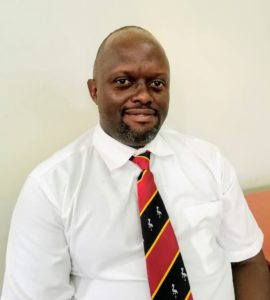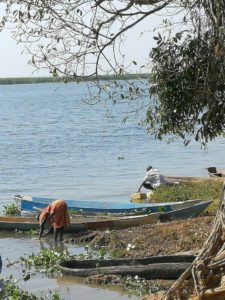Harnessing the power of WASH in the fight against Neglected Tropical Diseases
By Yael Velleman
While in Uganda last week, I had the unique opportunity to sit down with the Ugandan Ministry of Health’s National Program Officer for Trachoma Control, Gilbert Baayenda. Trachoma is a devastating bacterial infection and the world’s leading infectious cause of blindness. It is one of 20 Neglected Tropical Diseases (NTDs) that cause extreme pain, disability and even death. Yet NTDs are preventable. They are diseases of poverty and marginalization that affect over one billion people across 149 countries globally.
Access to safe water, sanitation and hygiene (WASH) is essential for the prevention, treatment and care of NTDs. Recognizing this, the World Health Organization (WHO) and the NTD NGO Network (NNN) developed, “WASH and health working together: A ‘how-to’ guide for Neglected Tropical Disease programmes,” the first step-by-step guide for building successful WASH and NTD partnerships. Since its launch last year on what is now World NTD Day, the toolkit has been utilized in a number of countries across sub-Saharan Africa and Asia, including Uganda. As the lead on collaboration with the WASH sector on behalf of Uganda’s National NTD Control Program, Gilbert has championed greater coordination between WASH and NTD partners, and is now in the process of adapting the innovative WHO and NNN toolkit to meet national and district-level needs.
What motivates you, as a healthcare professional, to be a WASH champion?
GB: I have lived and worked at the community and sub-national level for about 15 years and have seen what it means to have access to water and sanitation. I’ve worked in nomadic communities where WASH is non-existent – where there is no safe water, no latrine, no hygiene facilities, and water is scarce. Even where we believe that access is relatively good, we hear communities complain that there is only one water source and they must travel far to access it.
What motivates me is the decisions we make and their impact on the community. If even one family that currently has difficulties in access can say that the WASH problem has been resolved, then I would be relieved. If we solve half of the cases of disease within the next couple of years, I would be motivated to scale up to as many homes as we can get to.
What challenges have you faced in addressing WASH and NTDs?
GB: One challenge is that service providers, as well as communities, are not aware of the connection between WASH and NTDs. We must get the message out that without improvement in WASH, we may not be able to sustain the gains we have made in the fight against NTDs. This is clear when you compare progress on trachoma and schistosomiasis; while we have eliminated trachoma in most endemic districts, we have seen progress on schistosomiasis reversed despite added treatment. The only way we can address this is if we improve WASH.
In terms of achieving this improvement, we are challenged by natural disasters such as floods, poor soil conditions that make latrine construction difficult, and long distances to water sources. When we conduct health education, we try to emphasise the vital role of WASH.
Getting all the players to sit at the same table and view themselves as part of one WASH community instead of medical, engineering, NGO, social science or hydrology specialists, and initiating collaboration, has been a challenge. Another challenge is that Uganda has a decentralised government system, so whatever we do at the national level has to also reach all 126 districts if we want to make an impact.
Coordination of the collaboration itself is also a challenge as it is important to ensure that one sector does not appear to dominate the others – we’ve therefore tried our best to get everyone together and this is expected to improve as the concept of WASH and NTD collaboration gets more buy in.
How have you begun to overcome these challenges and improve cross-sectoral coordination?
GB: We decided to adopt the WASH and NTDs toolkit [“WASH and health working together”] and customise it to the Ugandan context. We have held meetings at the national level and we would like to hold specific WASH and NTDs meetings with district officials in which we can explain the toolkit and the expected results, to get them to appreciate that collaboration and partnership with WASH stakeholders and relevant ministries is vital. WASH is a very big challenge and we cannot do it alone.
What difference can collaboration make?
GB: Even if we come up with one innovation that can ensure coverage in fishing communities, which are right on the water, yet they have no access to safe water, that will be a huge success. If the communities that are very far from the water source can benefit from innovation to resolve this problem, I would be proud to have been a part of this effort.
For more information:
https://www.who.int/water_sanitation_health/publications/wash-health-toolkit/en/ https://www.infontd.org/cross-cutting-issues/wash-and-ntds
https://www.ntd-ngonetwork.org/
About the author:
Yael Velleman is the Director of Policy & Communications at SCI Foundation, and co-chairs the NNN WASH Working Group






